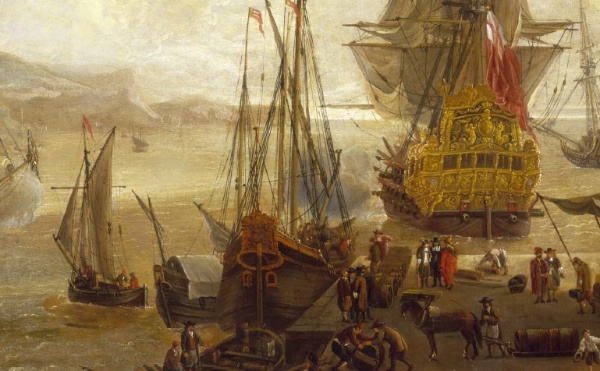Activities
International Conference Connectors of Commercial Maritime Systems
El Papel de las Repúblicas Europeas en la Conformación del Estado Moderno - 07/09/2015
On 20th and 21th June 2014 took place the International Conference Connectors of commercial maritime systems: Merchant and trade networks between the Atlantic and the Mediterranean (1600-1800) at the School of Latin-American Studies in Seville, organized by Manuel Herrero Sánchez and Klemens Kaps.

In recent years, historical scholarship on long-distance trade in the early modern period has focused commercial communities in different port cities and their social networks in order to explain the movement of goods, capital and information between different world regions. Within this picture, however, a variety of networks can be recognized such as ethnic and cultural, family based or transnational ones, of which the first ones have received particular attention by highlighting their function as generators of trust as basis for doing business.
These different conceptualizations of commercial exchange have gradually substituted the more traditional view of linear or bilateral exchange relations between regions or states and focused instead on a multi-polar perspective: Actors, communities and their networks are conceived as connectors between commercial systems, as recently conceptualized by Ana Crespo Solana or Isabel Lobato Franco. Commercial systems can be understood as exchange relations within maritime empires during the age of mercantilism (such as Spain, Portugal, France or Great Britain) or between regions whose production was complementary (such as the exchange of raw materials with manufactured goods etc.).
Starting from this background and studies of scholars such as Klaus Weber, XabierLamikiz, Sherrylynne Haggerty, Ana Crespo Solana, CatiaBrilli and others, the conference intends to focus on merchants and their networks as connectors between different commercial systems in the Mediterranean and the Atlantic during the 17th and the 18th century including Spanish America, the Caribbean, and the European Atlantic coast and reaching out to Northern Europe. Papers can include either case studies of single merchants, companies, families or study mercantile communities.
Hereby one or more of the following research questions should be addressed:
- What kind of network configuration can be identified for mercantile exchange such as those based on family and kinship, origin (cultural or ethnic networks) or those reaching beyond linguistic, cultural and family-based boundaries?
- Was there one dominant network type or can we observe a combination of different network types, with a difference between the network’s core (meaning the actors with strong relations among each other) and its more peripheral parts (meaning those actors with weaker relations among each other)? E.g. Family-based relations or ethnic connections could form the network’s core (e.g. partners of a company), while transnational networks could be located rather in weaker contacts (e.g. partners for one business operation, eventual correspondents etc.).
- Did the network structure change over time, and if so, what shifts can be observed (strengthening of relations, rupture of networks etc.)? What were the driving elements of these changes (such as changing trust, failure of business operations)?
- What was the impact of mercantile networks for commercial exchange? In what way did they support market connections? Did they cut back competition from outsiders or was there also competition between different networks?
- What was the impact of the social and political dimension on mercantile networks? Was the formation of a cosmopolitan, trans-national merchant class limited to the upper strata of traders or can we find such examples also for small-scale tradespeople? What role did play marriages, political connections and the support by state institutions?
Conference languages are English and Spanish.

























